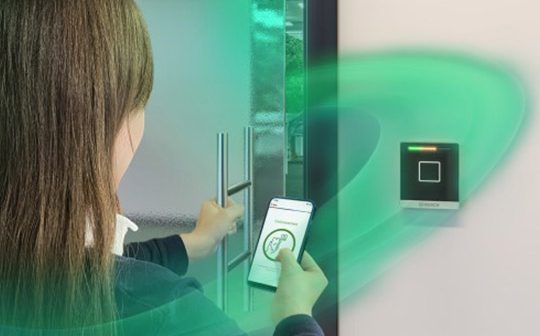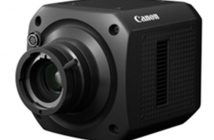
Bosch has revealed its latest solution – Mobile Access, allowing access to buildings and restricted areas to be managed without additional identification media such as plastic cards.
Mobile Access is fully integrated into the tried-and-tested Access Management System from Bosch and offers numerous benefits in terms of efficiency, security, and convenience for building owners, employees, and visitors.
A few clicks are all it takes for authorized individuals, such as Facility Management or IT staff, to configure and create access authorizations in their local Access Management System.
Visitor and employee data can then be managed with ease using an intuitive, browser-based interface. For example, authorization credentials can be sent remotely and easily as a link or a QR code to an app on the end users’ mobile devices and can then be deleted again as necessary.
“Most people always carry their smartphones with them everywhere they go. Storing authorization credentials on mobile devices has several advantages,” explains Gregor Schlechtriem, Senior Vice President at Bosch Building Technologies, adding: “You provide both employees and visitors with a modern, easy-to-use, and sustainable solution that means they don’t have to resort to additional forms of identification like plastic cards. Using the appropriate settings, they don’t even have to take their smartphone out of their pocket. The app can run in the background once started, so the smartphone’s home screen doesn’t have to be unlocked to open doors.”
This solution also enhances accessibility, and is a major advantage for wheelchair users, for example, who are often unable to reach card reader machines.
Mobile Access also modernizes access control without compromising on high security standards. Mobile Access uses forgery-proof certificates to transmit authorization credentials via BLE (Bluetooth Low Energy) between the smartphone and the reader and employs the encrypted OSDP protocol between the reader and controller.
The solution also supports two-factor authentication that can be configured on the readers. Visitors and employees are then prompted to unlock their smartphone to gain access, for instance by using their Face ID.
This makes it especially easy to comply with strict data protection laws, because sensitive personal data does not have to be stored on local systems.
That means building operators also benefit from secure and cost-effective two-factor authentication. Additionally, no user registration is needed to use the app, meaning no personal data is stored there for this purpose either.





